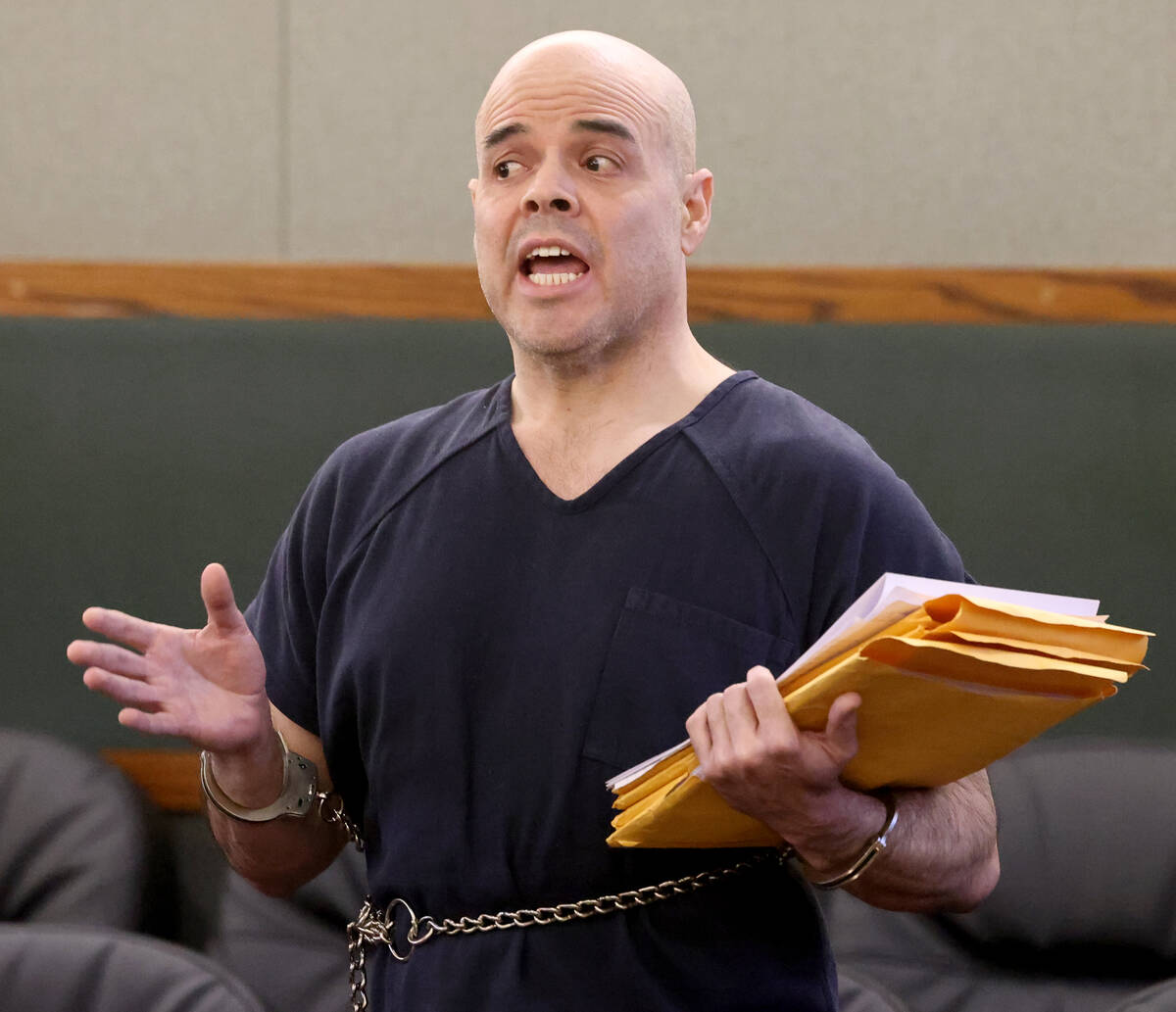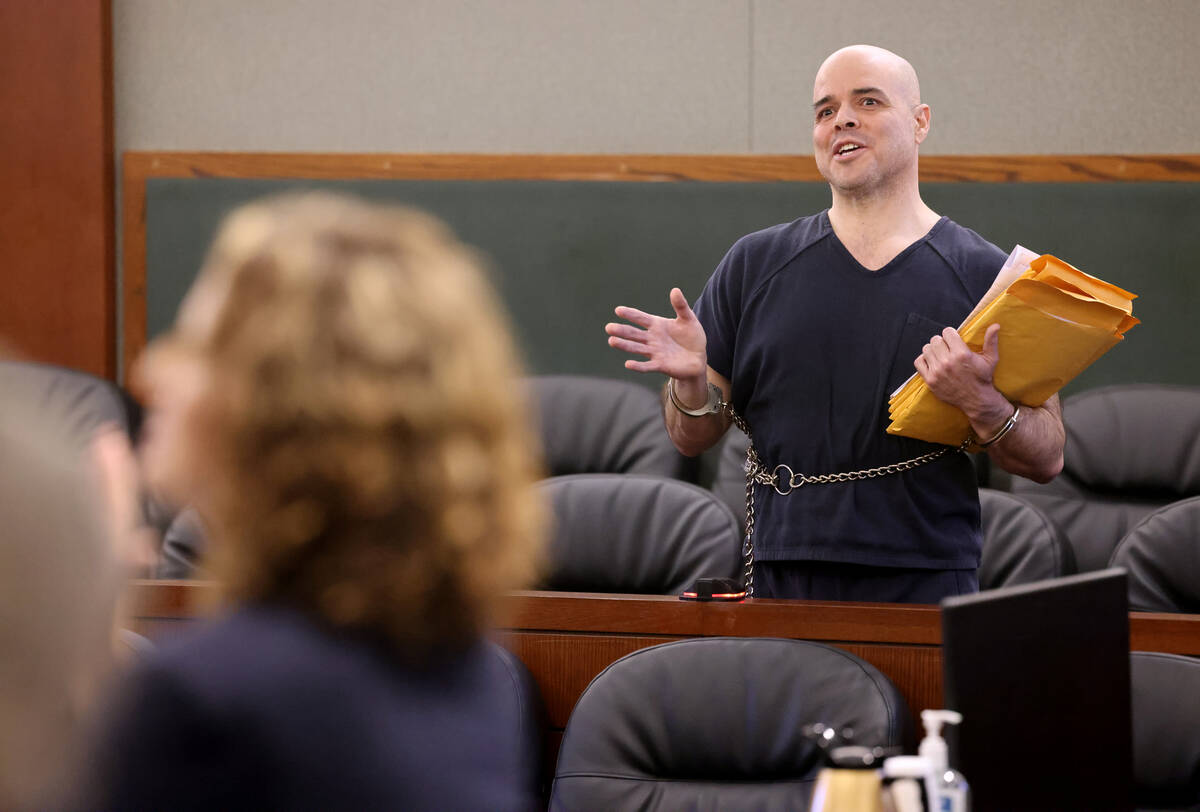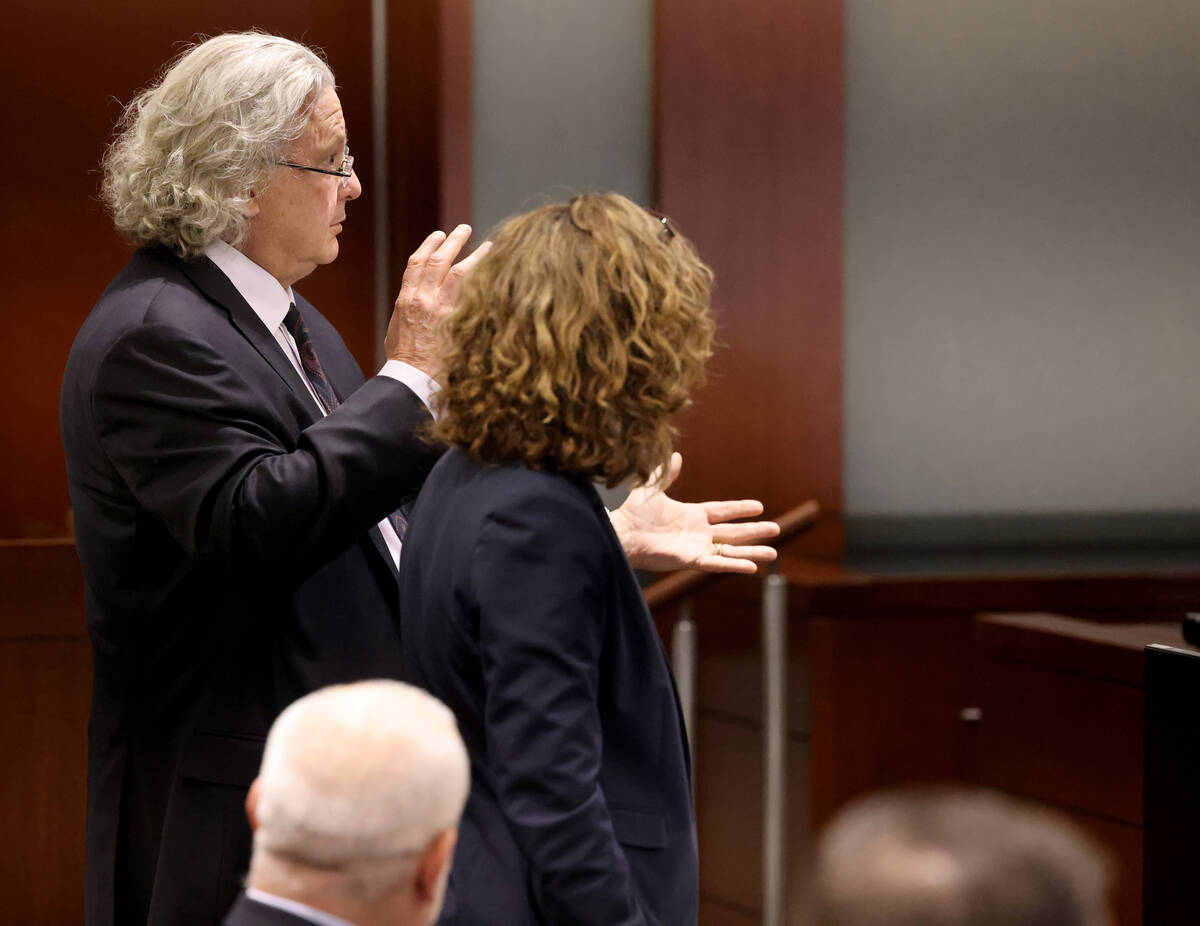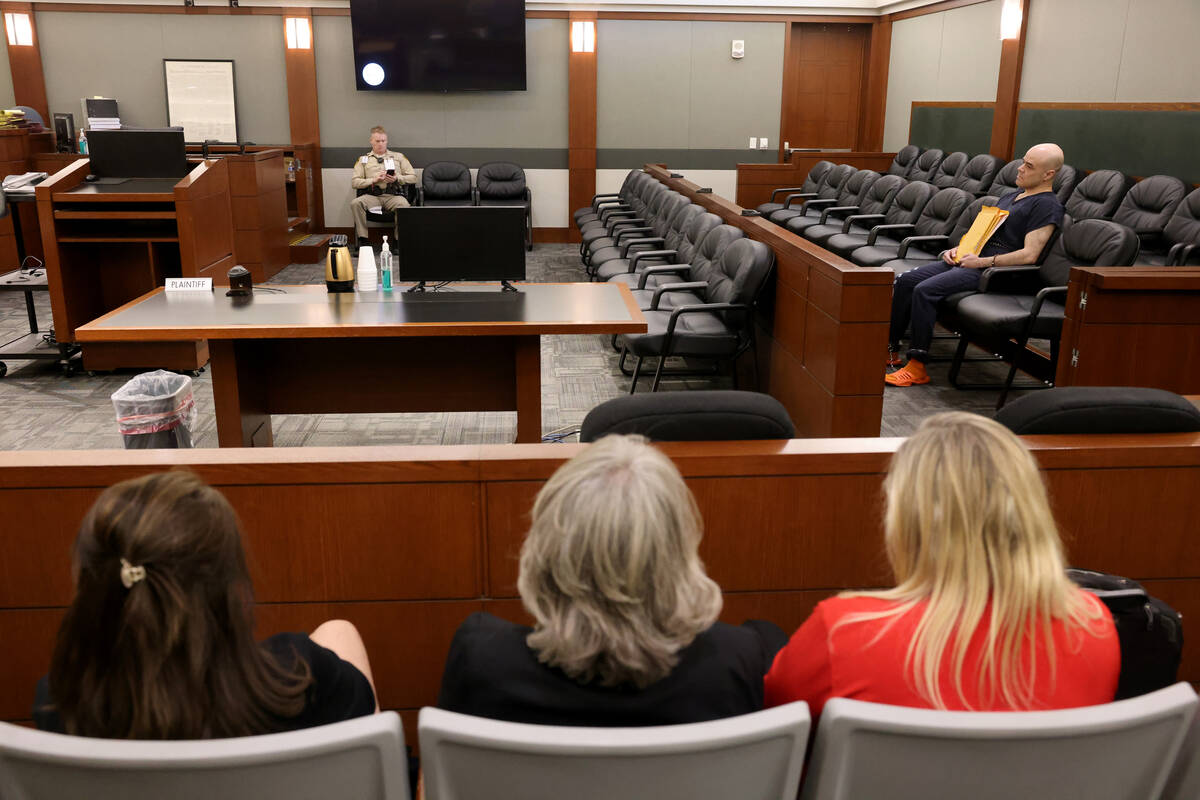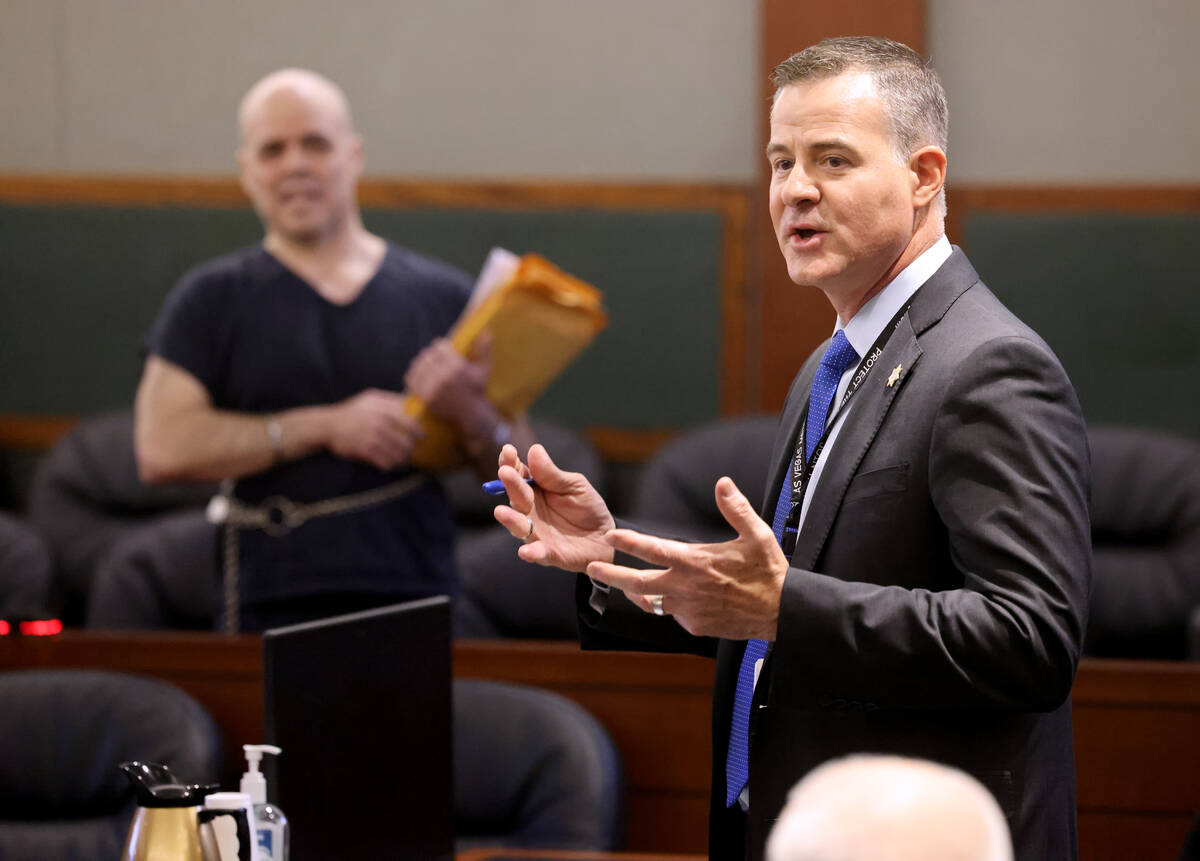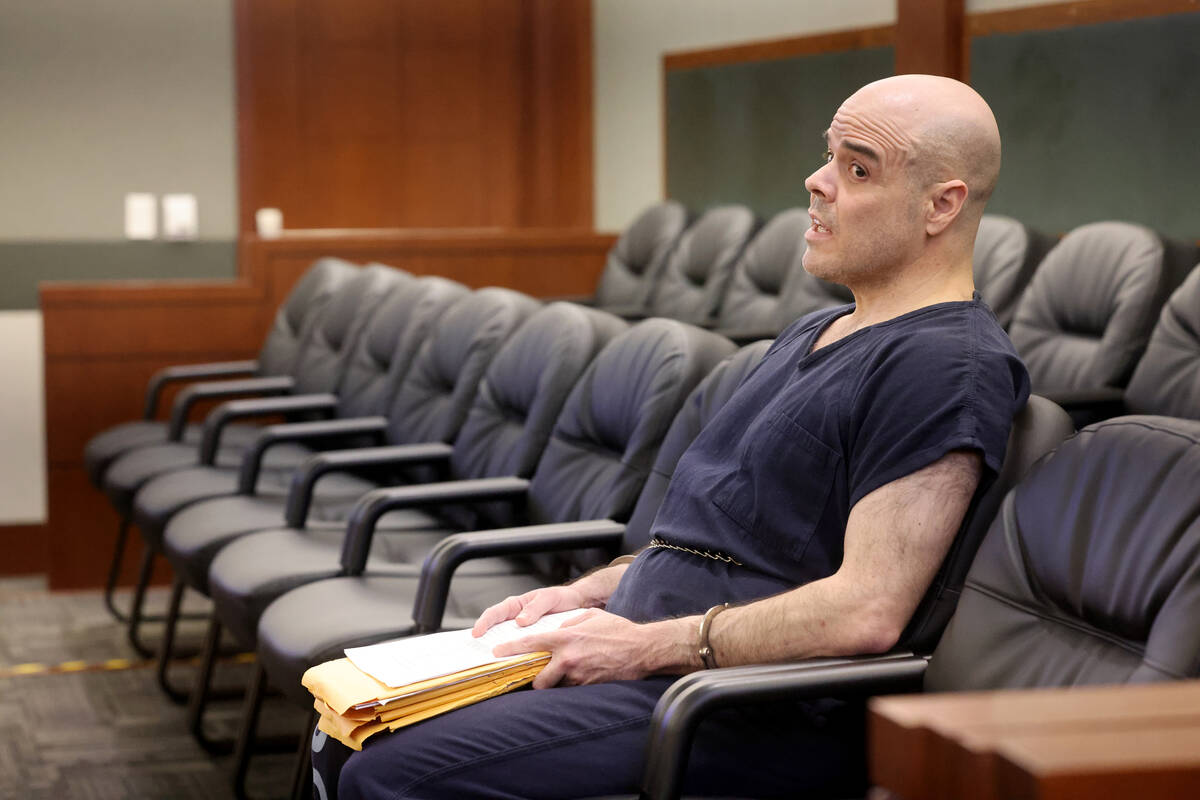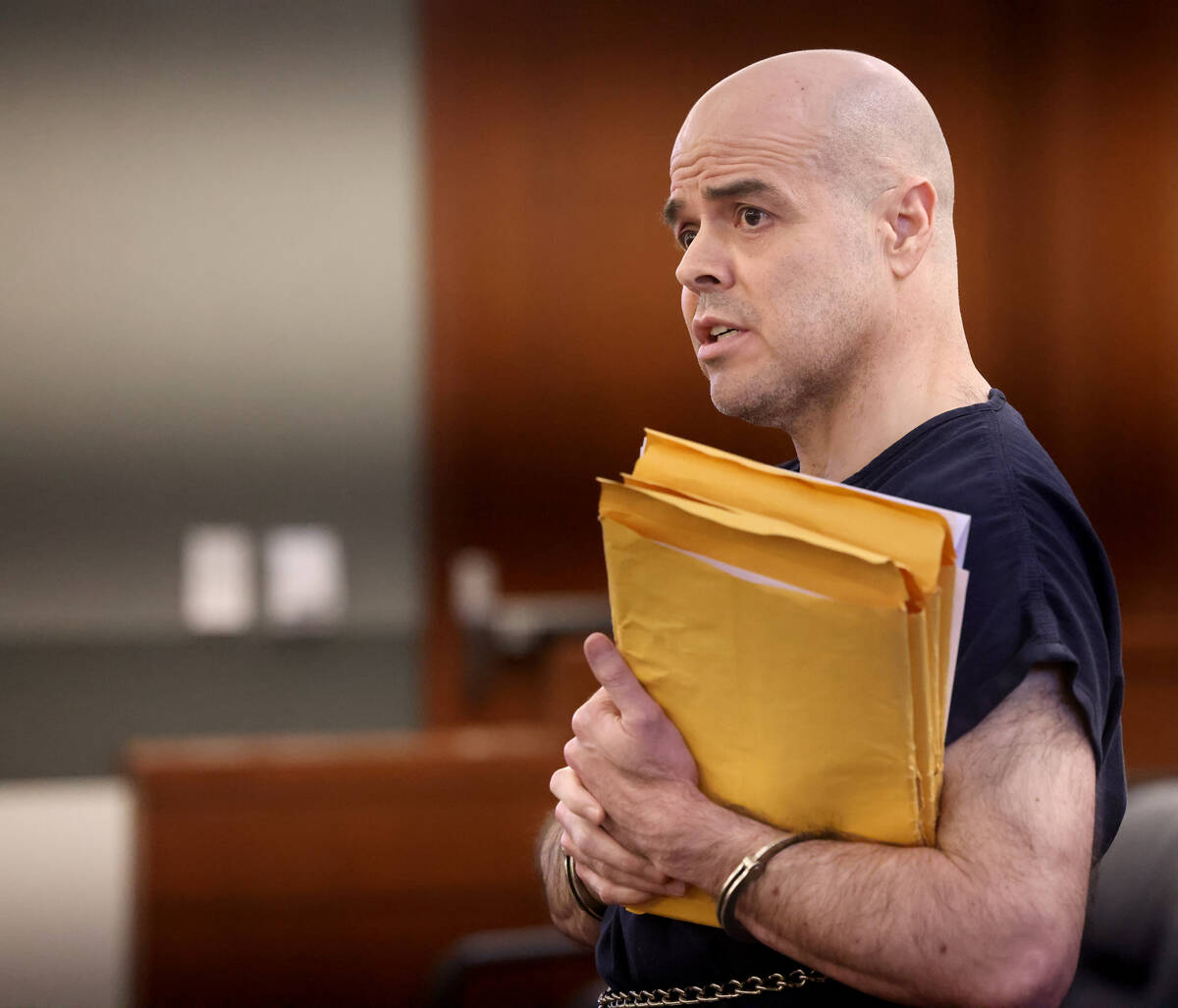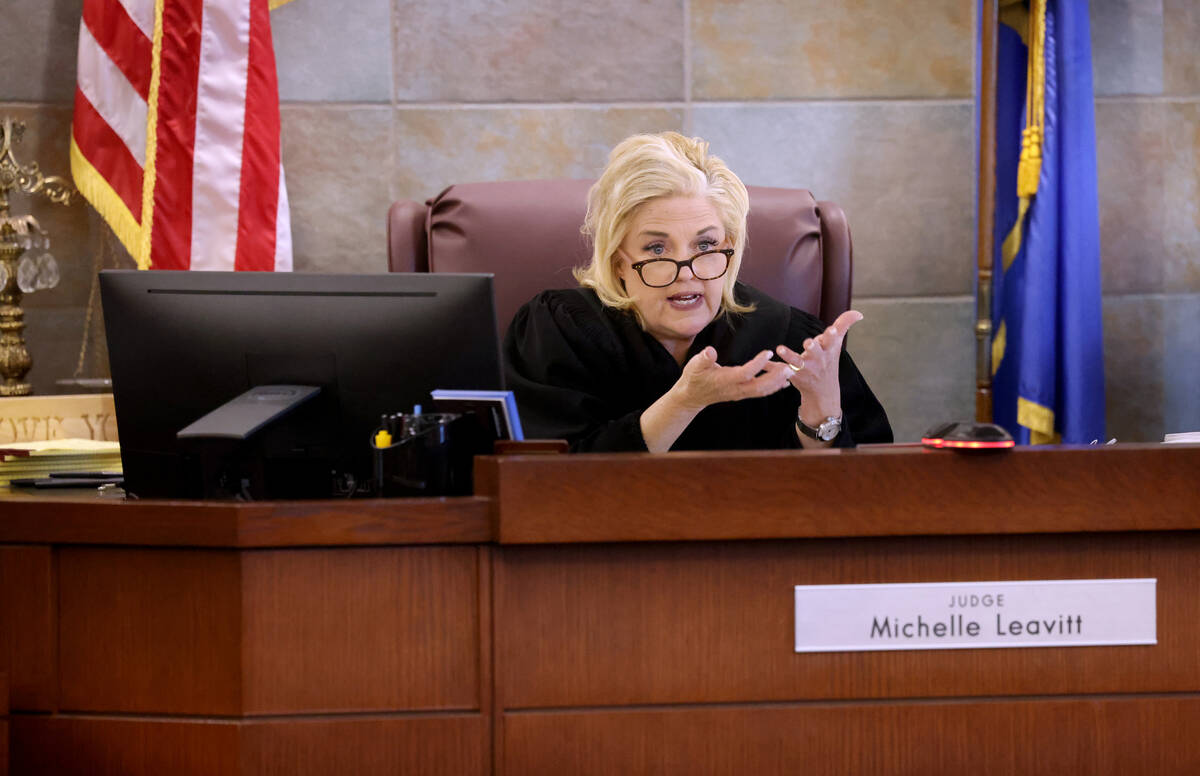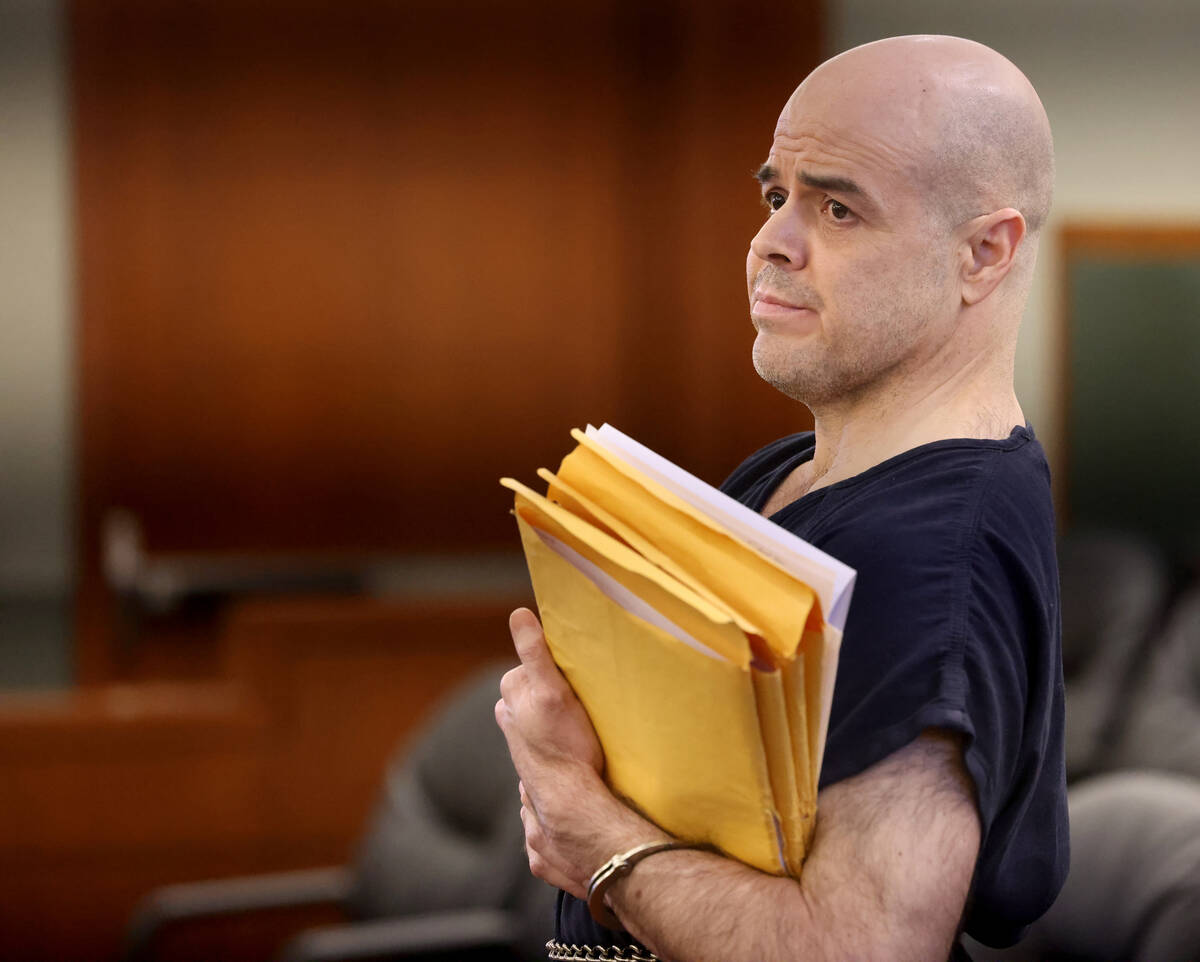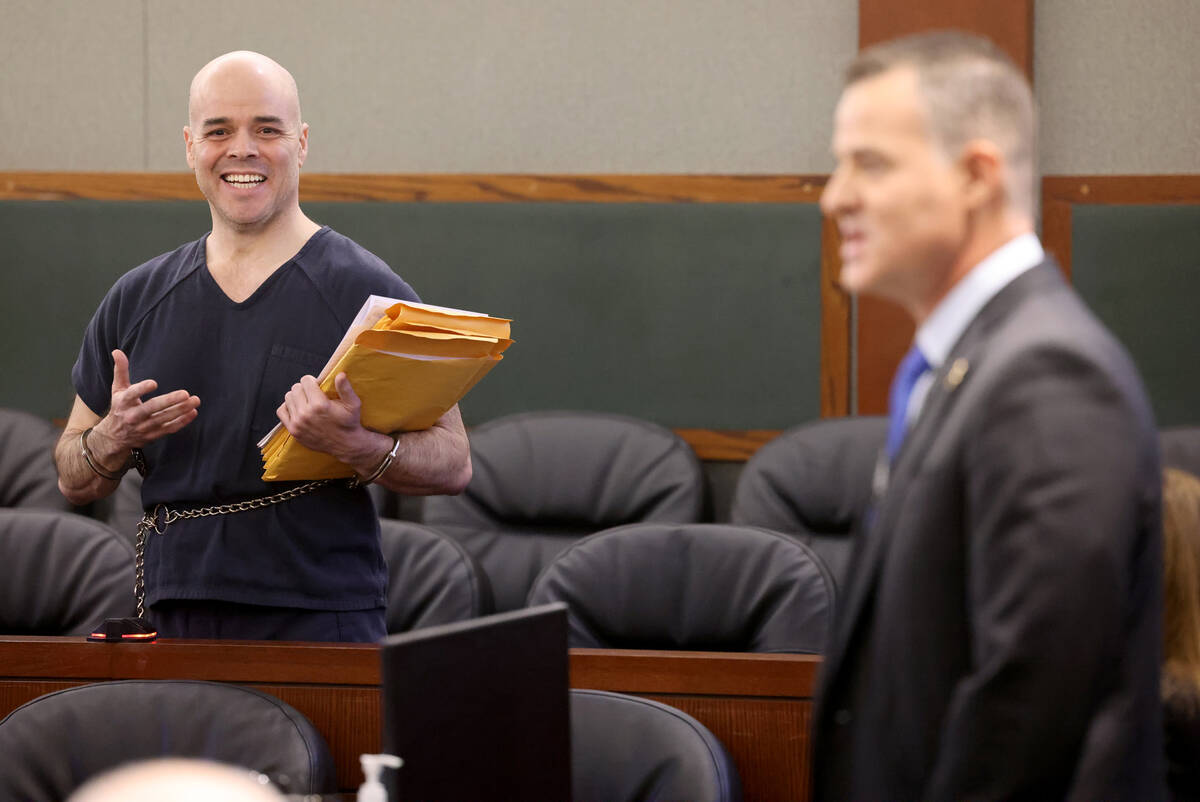Dispute over search of slain RJ reporter’s devices likely headed back to high court
During a contentious hearing Wednesday, the parties agreed that District Judge Michelle Leavitt should enter a court order preventing officials from searching through slain reporter Jeff German’s devices until the Nevada Supreme Court can again hear the issue.
Attorneys for the Las Vegas Review-Journal and the Metropolitan Police Department appeared in court for the hearing on a proposed protocol for police and prosecutors to search through German’s personal devices.
Prosecutors have accused former Clark County Public Administrator Robert Telles of fatally stabbing German outside the investigative reporter’s home in September over articles he had written about Telles’ conduct as an elected official.
After German was killed, police seized personal devices from his home and body. The Review-Journal has been fighting to prevent officials from searching the devices, which may contain information about his confidential sources, including sources who may work for Metro or the Clark County district attorney’s office.
On Monday, the newspaper filed court documents opposing a proposed protocol from Leavitt. The drafted order called for the devices to be searched by two Metro detectives and the two prosecutors on the case, mimicking the most recent proposed order from Metro.
The newspaper has argued that the information on German’s devices is protected by the First Amendment and Nevada’s shield law. A proposed protocol from the Review-Journal calls for the devices to first be searched by third parties serving as hearing masters, who would determine which information is covered by search warrants issued in the investigation into German’s killing.
David Chesnoff, one of the attorneys representing the Review-Journal, argued Wednesday that the news organization’s proposed protocol would prevent leaking German’s information to the state agencies he reported on.
“You’re asking me to basically agree that people don’t follow court orders,” Leavitt said. “So if people don’t follow court orders, it doesn’t matter who I appoint.”
Chesnoff argued that the detectives and prosecutors who would search through German’s devices because of the drafted proposal would be the same officials prohibited from searching a journalist’s materials under state law.
“There’s a conflict between your good intentions and what the law actually says, and it’s for the Supreme Court to tell us whether or not we’re right,” Chesnoff said.
Mathew Christian, an attorney representing Metro, again argued that the Review-Journal has no standing to intervene in the criminal case. He also said the Review-Journal’s legal interventions in the case have been overly complicated, and “shouldn’t have turned into what it’s turned into.”
Attorney Ashley Kissinger, who represents the Review-Journal, said Metro and the district attorney’s office have used “procedural gamesmanship” to prevent the news organization from seeking relief in court.
“We have been forced at every turn in this case to file the crazy pleadings that we have had to file because of the positions that Metro and the state are taking,” she said.
Once Leavitt officially files an order on the search protocol, any of the parties then could appeal to the Supreme Court.
Leavitt indicated Wednesday that she would enter a court order prohibiting the devices from being searched until the Supreme Court can again hear the matter.
Contact Katelyn Newberg at knewberg@reviewjournal.com or 702-383-0240. Follow @k_newberg on Twitter.



